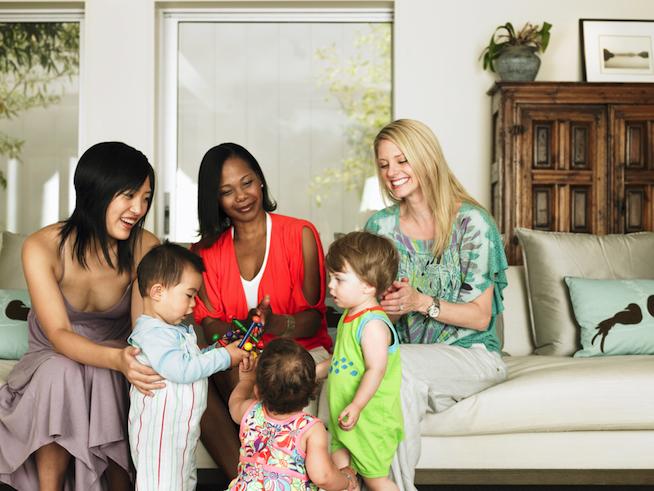
“Definitely don’t be afraid to use a nipple shield,” I told a woman the other day. “Cracked nipples are the worst, let me tell you!”
“Ooh, be ready for some very orange poo in his diapers,” I warned a mother about to try her son on sweet potatoes for the first time.
Which was the close friend, and which was the woman had I met five minutes previously? It’s difficult to tell when the conversation is between new mothers. Our desperate circumstances create unusual intimacies, and often very quickly. To be clear, I don’t often advise new acquaintances about their nipples. But a new mama attending our breastfeeding support group for the first time? Welcome to the tribe.
This closeness leads to a form of friendship that I am slowly differentiating from my previous experiences. Being in my early 30s, I have entered a baby-having time frame in my friend circles. Two close friends had babies within a year I had mine, and it has been wonderful to share the experiences with them. No vetting needed — I already know these people are awesome, and now we can just add parenting topics to our conversations. These are ‘friends who are moms.’
It’s helpful to have friends who completely understand that movie night at our place now needs to start after the baby is in bed. They send invites that say “babies welcome :).” Our baby is not an inconvenience because they are dealing with the same constraints, so we all figure it out as we go. ‘Friends who are moms’ basically picked up the same hobby as I did, at the same time, and now we all do it together. Sweet.
But I have also encountered a whole new class of ‘mom friends’ — people I probably wouldn’t engage with too much if it weren’t for the fact that we gave birth around the same time. They are lovely women, no doubt. But I often end up with the realization that although I can name little Caden’s favorite book and how the new naptime routine is going, I know almost nothing about his mother, the person I’ve been talking to for months. She is primarily just another mother, and our only channel for relating is our children. She is a ‘mom friend.’
Thankfully, the boundary between these two classes is fluid. I can count several ‘friends who are moms’ who started off as just another breastfeeding mama. Now I see their passions bubble through the Facebook status updates and the articles they choose to link to. I ask about their jobs and their partners and their lives. They have become whole people in my eyes.
I imagine my circle of ‘mom friends’ will probably expand once my child is old enough to start making friends of her own (I hear birthday parties are their own special brand of fun for parents). I’ll have to polish up my small talk, and remind myself which controversial topics should probably remain off-limits. Eventually, supervised playdates will evolve into my daughter making friends on her own, and ‘mom friends’ will morph into occasional mentions of “Sarah’s mom”.
In the meantime, I find myself in the unique position of discussing nipple creams and baby bowel movements with women I met only moments before. This strange familiarity among ‘mom friends’ arises surprisingly soon. We are all so desperate for adult connection and confirmation that our lives and children are ‘normal’ that we latch on to each other, groping for shared experience and validation. These situational friendships are shallower than my real ones, but, I think, no less necessary.






